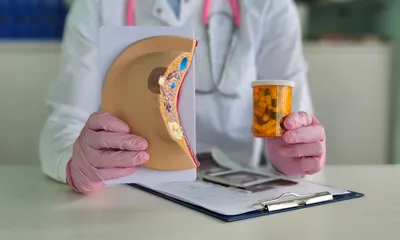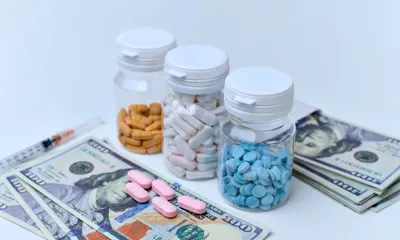High Cholesterol
-
Description
-
Signs & Symptoms
-
Anatomy
-
Cause
-
Diagnosis
What is High Cholesterol?
High cholesterol is when a person’s blood cholesterol level is elevated to the extent that it is likely to build up and form cholesterol plaques in arteries. These plaques may block arteries and cause heart attack, stroke, embolism, or other related health risks. As cholesterol moves through the blood it attaches to proteins to form what is called a lipoprotein, and there are two types of them. LDL low-density lipoprotein and HDL high-density lipoprotein.
LDL cholesterol is the one that can build up and block arteries, and a person with high cholesterol risk will probably have it based on excessive LDL cholesterol. A high triglyceride count is also common for a person with too much blood cholesterol, and this means there is too much fat in the blood. High triglycerides are a very prominent factor in people developing heart disease.
What Causes High Cholesterol?
Far and away the biggest contributor to high cholesterol for people is diet. Getting a lot of saturated fat or trans fats from the foods they eat will increase a person’s LDL cholesterol quickly. People who are obese with BMI (body mass index) of 30 or higher will also be more at risk for high cholesterol, and the same will go for people who have an overly sedentary lifestyle and don’t get enough exercise. Too much alcohol consumption will push up cholesterol levels too, as will cigarette smoking.
Medical conditions can also be behind what causes high cholesterol, and people with chronic kidney disease, diabetes, HIV / AIDS, hypothyroidism or lupus will want to be more mindful of their cholesterol levels and be monitoring them with their doctor. Medication use may also be what’s causing elevated blood cholesterol, and specifically with ones for cancer, hypertension, acne, irregular heartbeat, HIV, and organ transplantation recovery.
High Cholesterol Treatment
The most conventional approach to high cholesterol treatments is to have the person start on statin medications like Crestor or Lipitor. These drugs are formulated to lower LDL cholesterol while promoting increases in HDL cholesterol. They tend to be very effective for people at risk of heart attack or stroke because of high cholesterol, and doctors will prescribe them quite readily if that’s the situation for people.
Diet changes are almost always needed too as part of high cholesterol treatments. A low-sodium diet that contains a lot of fruit, vegetables, and whole grains will be recommended, along with limiting the amounts of animal fats and using good fats in moderation. Getting more exercise and being at a lighter and healthier body weight will also be advisable, plus limiting alcohol intake if a doctor suspects a person’s higher current intake is contributing to high cholesterol.
Signs & Symptoms
- No symptoms (often asymptomatic)
- Chest pain or angina (if it leads to heart disease)
- Shortness of breath (if it leads to heart disease)
- Fatigue
- Numbness or coldness in extremities (if it leads to atherosclerosis)
- Xanthomas (yellowish deposits of cholesterol under the skin)
Anatomy
- Arteries
- Heart
- Liver
- Blood vessels
- Pancreas
- Skin (for xanthomas)
Cause
- Poor diet (high in saturated fats and trans fats)
- Lack of physical activity
- Obesity
- Smoking
- Excessive alcohol consumption
- Genetic factors (familial hypercholesterolemia)
- Diabetes
- Hypothyroidism
- Chronic kidney disease
- Liver diseases
Diagnosis
- Blood test (lipid panel)
- Physical examination
- Medical history review
- Genetic testing (for familial hypercholesterolemia)
- Electrocardiogram (ECG)
- Echocardiogram
- Stress test
- Coronary angiography
- CT or MRI scans (for related complications)



